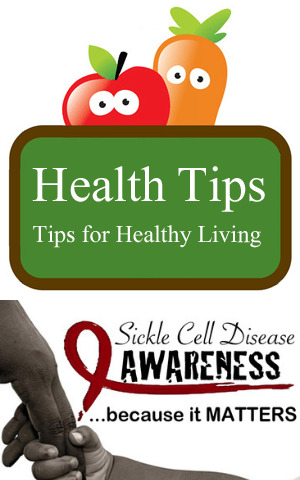______________________________________

The term sickle cell disease (SCD) describes a group of inherited red blood cell disorders. Healthy red blood cells are round, and they move through small blood vessels to carry oxygen to all parts of the body. In someone who has SCD, the red blood cells become hard and sticky and look like a C-shaped farm tool called a “sickle”. The sickle cells die early, which causes a constant shortage of red blood cells. Also, when they travel through small blood vessels, they get stuck and clog the blood flow. This can cause pain and other serious problems such infection, acute chest syndrome and stroke.
Sickle cell disease is a life-long illness. The severity of the disease varies widely from person to person. In high-income countries like the United States, the life expectancy of a person with SCD is now about 40–60 years.
There are several types of SCD, the most common being Sickle Cell Anemia (Hb SS Disease). SCD is found predominantly in African-Americans but is also seen in people of other ethnic groups. These ethnic groups include individuals from parts of the Middle East, Central India, and countries bordering the Mediterranean Sea, especially Italy and Greece.
The exact number of people living with SCD in the U.S. is unknown. It is estimated that SCD affects approximately 100,000 Americans.
- SCD occurs in 1 out of every 365 Black or African-American births.
- SCD occurs in 1 out of every 16,300 Hispanic-American births.
- About 1 in 13 Black or African-American babies is born with sickle cell trait (SCT)
There is no single best treatment for all people with SCD. Treatment options are different for each person depending on the symptoms.
The only cure for SCD is bone marrow or stem cell transplant. Bone marrow or stem cell transplants are very risky, and can have serious side effects, including death. For the transplant to work, the bone marrow must be a close match. Usually, the best donor is a brother or sister.
If you are affected by SCD, always remember that "You Can Live Well With Sickle Cell." People with sickle cell disease can live full lives and enjoy most of the activities that other people do. This can be accomplished by: partnering with a trusted physician, obtaining adequate rest and nutrition, living a stress free life through prayer, meditation and mindfulness.
For more detailed information regarding Sickle Cell Disease, please click links below:
www.casicklecell.org
www.sccac.net
www.facebook.com/sccacnorcal
https://www.cdc.gov
www.nhlbi.nih.gov
Living Well With Sickle Cell
People with sickle cell disease (SCD) can live a normal life and achieve their dreams and aspirations if the condition is well managed. Currently, the level of technology has made it easy for SCD persons to manage the disease well, but the fact still remains that living with this genetic blood disorder comes with lots of challenges. The following tips will help you, or someone you know with sickle cell disease, stay as healthy as possible.
Living well with Sickle Cell Disease means:
- Obtaining good medical care
- Receiving regular check-ups
- Preventing infections/colds and flu - practice good handwashing hygiene
- Good health habits including remaining hydrated (6-8 glasses of water/day)
- Building a network of support from family and friends
- Practicing stress management (pray & meditate)
- Exercise
- Know Your Story (be an advocate for self - understand your health condition, treatment regimen and preventive measures for remaining well).
Always remember F.A.R.M.S.
F: Fever, fluids, food - drink plenty of fluids, water is the best/eat a well-balanced diet
A: Air (Oxygen)-smoking robs you of oxygen, refrain from smoking
R: Rest - rest when you feel tired
M: Medications/Medical Care – follow doctors’ orders when taking medications
S: Situations-refrain from stressful situations, cultivate positive relationships, dress warmly when it's cold
Always remember - You Can Live Well with Sickle Cell
“Dear friend, I pray that you may enjoy good health and that all may go well with you, even as your soul is getting along well.” 3 John 1:2


